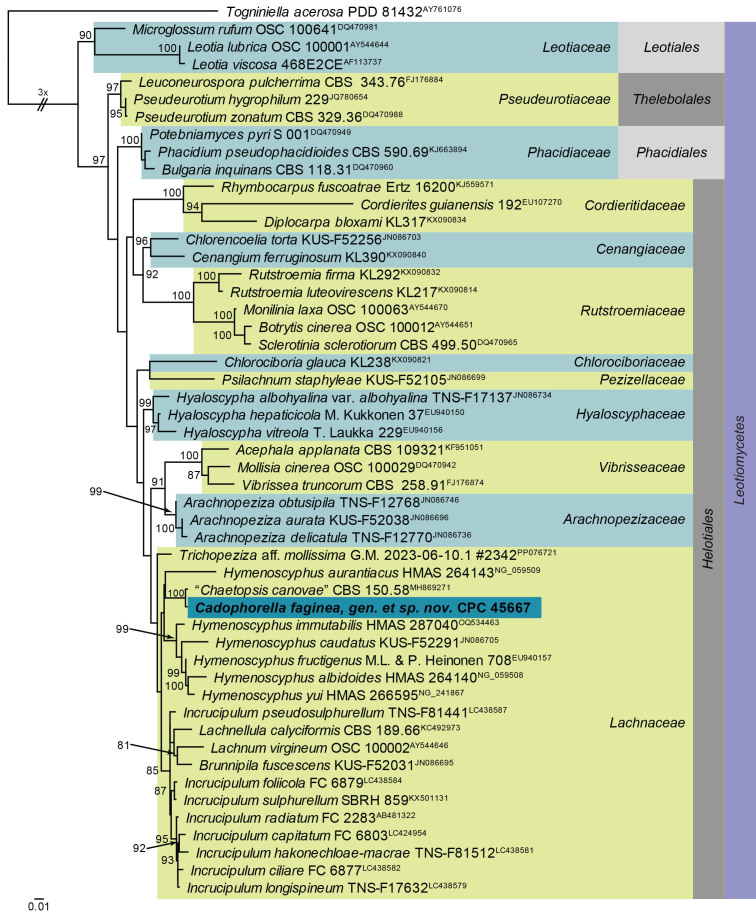Fig. 8.
Multigene phylogeny of Bisifusarium based on BenA, CaM, ITS, LSU, RPB2, and tef1 sequences (see Suppl. Table S3). Datasets were aligned using MAFFT v. 7.520 ( Katoh & Standley 2013) and a Maximum Likelihood (ML) tree was calculated in IQ-TREE v. 2.2.2.6 ( Minhet al. 2020). Best nucleotide substitution models were calculated with ModelFinder ( Kalyaanamoorthy et al. 2017) as implemented in IQ-TREE. Bayesian analysis was carried out in MrBayes v. 3.2.7a ( Ronquist et al. 2012), model selection according to MrModelTest v 2.3 ( Nylander 2004, Posada and Crandall 1998). The tree was rooted to Rectifusarium robinianum CBS 430.91 and R. ventricosum CBS 748.79. Values at nodes are ML ultrafast bootstrap (BS) ≥ 95% followed by Bayesian posterior probability (PP) ≥ 0.95. Bold branches indicate BS = 100 and PP = 1. Novel taxa are shown in bold. (ET = ex-epitype, NT = ex-neotype, LT = Lectotype, T = ex-type).

